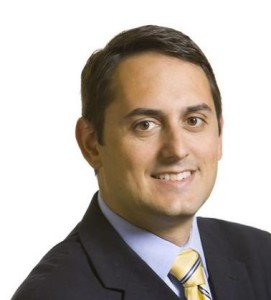The Right Note is a weekly opinion column. The views and opinions expressed in the column are those of the author and do not necessarily reflect the views of ARLnow.com.
 Last week, Sweet Briar College, located about 12 miles north of Lynchburg, made national news. It was not for academic or athletic success, but for announcing it would close its doors after 114 years.
Last week, Sweet Briar College, located about 12 miles north of Lynchburg, made national news. It was not for academic or athletic success, but for announcing it would close its doors after 114 years.
The private, liberal arts women’s college with 760 students continued to see declining enrollment and annual operating losses. The tuition and fees alone were nearly $35,000 annually, but according to reports, that rate was being discounted nearly 60 percent on average. Even with the heavily discounted rates, Sweet Briar could not attract enough new students to fill the gap. The school was increasingly relying on an endowment where a majority of the funds were restricted to specific uses.
Sweet Briar College may be an outlier, but the evidence suggests it is the symptom of something much bigger. Sweet Briar is not alone among small private colleges in feeling economic pressures. According to this Washington Post story, the average tuition discount is 4 percent and enrollment is down at “half of small private colleges and regional public colleges.”
The average total annual cost for private four year colleges is $42,419. Twenty years ago, that number was $26,487. And, while public universities are still more affordable, their tuition costs are rising at faster rates over the past 20 years than their private counterparts.
At the same time, median family incomes that are simply not keeping up with rising college costs. So, as parents and students look at costs that could potentially reach $70,000 per year — see Georgetown in D.C. — they have to ask themselves if it is really worth it. Forty million Americans have student loan debt. Total student loan debt is $1.2 trillion, an all-time high.
The question for lawmakers in Richmond is, will Sweet Briar’s closure inspire them to take a fresh look at the future of higher education here in the Commonwealth?
Virginia already has guaranteed admission agreements. This helps students keep total four-year costs down by allowing them to complete their first two years at community college. But, is there an increased role for community colleges?
Can we encourage public-private partnerships in Virginia where more degree programs are created to fulfill industry needs? Along these lines, should Richmond lobby Washington to break up the current accreditation system? Shouldn’t we consider allowing each state to establish its own, giving Virginia more flexibility to create innovative education solutions.
Are there other good ideas out there that simply do not rely on increasing student loans or a federal mandate requiring taxpayers to pay for two years of community college, or worse: requiring us to bail out the growing mountain of student loan debt?
A college education is still the key to better job opportunities. But, parents and students should not feel trapped by the current higher education system that is piling up debt on future generations.
Mark Kelly is a former Arlington GOP Chairman and two-time Republican candidate for Arlington County Board.


